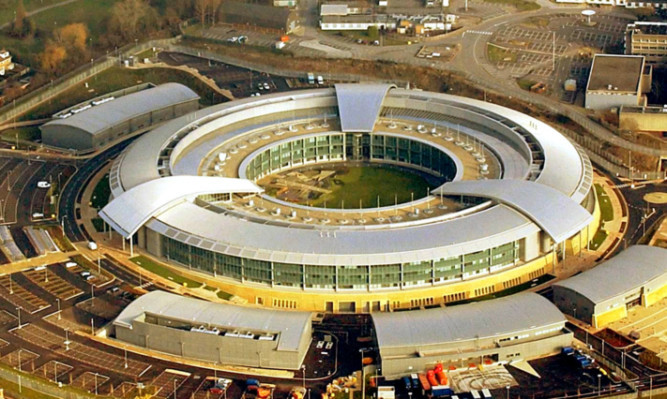A former technical worker at the CIA and America’s National Security Agency revealed himself as the whistleblower behind leaks about secret US government surveillance programmes.
Edward Snowden, 29, an American IT administrator for the defence contractor Booz Allen Hamilton, revealed his identity at his own request, the Guardian said.
It emerged last week that the UK’s eavesdropping agency GCHQ may have connections to the Prism system, which is said to give American agencies easy access to nine of the world’s top internet companies, as well as phone records of millions of people.
Mr Snowden, who fled to Hong Kong, told the newspaper he had no regrets about his actions, and said the unconstrained collection of data was destroying civil liberties.
He said: “I can’t allow the US government to destroy privacy, internet freedom and basic liberties. My sole motive is to inform the public as to that which is done in their name and that which is done against them.”
In a stark warning, he said that surveillance was not being properly constrained by policy, and would grow beyond control.
“The months ahead, the years ahead, it’s only going to get worse, until eventually there will be a time where policies will change – because the only thing that restricts the activities of the surveillance state are policy.”
He added: “There will be nothing the people can do at that point to oppose it. And it’ll be turn-key tyranny.”
Mr Snowden worked in an NSA office in Hawaii when he copied the last of the documents he planned to disclose, before telling supervisors that he needed to be away for a few weeks to receive treatment for epilepsy, he told the Guardian.
He left for Hong Kong on May 20 and has been there since. In an interview with the newspaper he said he was aware that he would was risking arrest and imprisonment, and that he “will be made to suffer for my actions”.
“I’ve no intention of hiding, I’ve done nothing wrong. The greatest feat that I have regarding the outcome of these disclosures for America is that nothing will change,” he said.
“People will see in the media all of these disclosures, they’ll know the lengths the government is going to to grant themselves powers unilaterally, to create greater control over American society and global society, but they won’t be willing to take the risks necessary to stand up and fight to change things, to force their representatives to actually take a stand in their interests.”
Mr Snowden said he had raised his concerns at work, but went public after they were dismissed.
William Hague will face questions from MPs today over GCHQ’s links to the controversial monitoring programme.
The Foreign Secretary is due to make a statement to the Commons amid mounting pressure to reveal information about connections to the Prism system.
Speaking on the BBC’s Andrew Marr Show on Sunday, Mr Hague insisted the British eavesdropping agency had not been trying to dodge tough legal checks on their activities.
The law-abiding British public had “nothing to fear” from their work, he added.
Mr Hague said: “As someone who knows GCHQ very well… the idea that in GCHQ people are sitting working out how to circumvent a UK law with another agency in another country is fanciful. It is nonsense.”
The Cabinet minister declined to confirm that he had personally authorised engagement with the US Prism programme.
But he said checks in place in this country, including reviews of decisions by the Interception Commissioner, were strong.
“That legal framework is strong, that ministerial oversight is strong,” he said.
“The net effect is that if you are a law abiding citizen of this country going about your business and personal life you have nothing to fear about the British state or intelligence agencies listening to the content of your phone calls or anything like that.
“Indeed you will never be aware of all the things that these agencies are doing to stop your identity being stolen or to stop a terrorist blowing you up tomorrow.”
Mr Hague said it would “defeat the object” to reveal how GCHQ or the security services work, because it would help terrorist networks, criminal networks, and foreign intelligence agencies.
“If actually we could tell the whole world, or the whole country how we do this business I think people would be enormously reassured by it and they would see that the law abiding citizen has nothing to be worried about,” he said.
“But if we did that it would defeat the object. This is secret work… it is secret for a reason.”
Prism is said to give America’s National Security Agency (NSA) and the FBI easy access to the systems of nine of the world’s top internet companies, including Google, Facebook, Microsoft, Apple, Yahoo and Skype.
It was reportedly established in 2007 under changes to US surveillance laws passed under President George Bush and renewed last year under Barack Obama in order to provide in depth surveillance on live communications and stored information on foreigners overseas.
The row crossed the Atlantic after documents emerged suggesting GCHQ had access to the system since at least June 2010.
The British agency, based at Cheltenham, was said to have generated 197 intelligence reports through the system in the 12 months to May 2012 – a 137% increase on the previous year.
According to The Guardian, the Prism programme appeared to allow GCHQ to circumvent the formal legal process required to obtain personal material, such as emails, photographs and videos, from internet companies based outside the UK.
GCHQ refused to comment directly on the report, but in a statement it insisted that it operated within a “strict legal and policy framework”.
